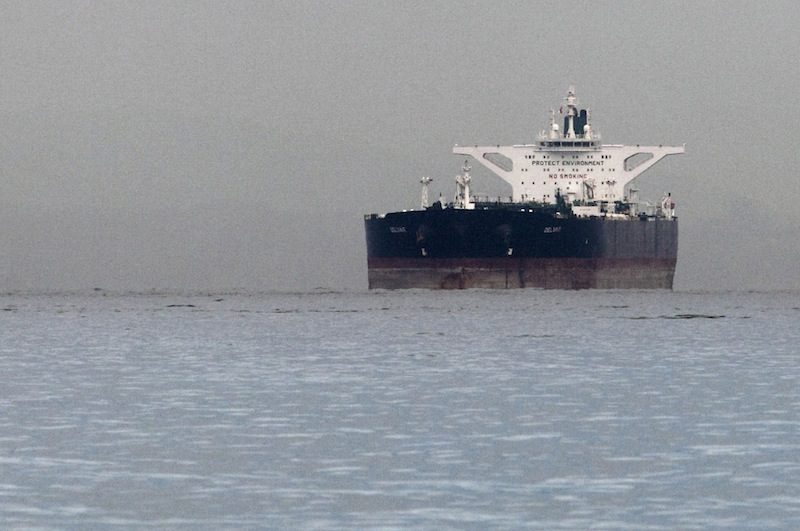File Photo: REUTERS/Tim Chong
By Verity Ratcliffe (Bloomberg) –Iran is about to burn a lot more fuel oil as a result of U.S. sanctions and new global shipping rules, reversing the nation’s progress in switching to cleaner-burning natural gas.
Power plants and other industrial facilities will burn more than 200,000 barrels a day of highly polluting fuel oil next year, double the amount Iran used in 2018, according to a forecast by Iain Mowat of consultant Wood Mackenzie Ltd.
Back to black
Iran produces a surplus of fuel oil, and the excess has swelled since the U.S. began restricting the OPEC member’s exports last year. Sanctions also prevent Iran from importing the equipment it would need to refine the heavy oil product into less-polluting products like gasoline and, even if they find a way building refineries takes time.
The situation will only worsen once the International Maritime Organization restricts the use of high-sulfur fuel oil for most vessels starting Jan. 1. Commercial ships and power stations are the two main sources of demand for fuel oil. By curbing the shipping industry’s appetite, the UN agency’s new measure will leave Iran little choice but to burn more fuel oil at home to generate electricity.
Iranians “will have no choice but to dump it at whatever low price they can get for it, cut back on refining or use it themselves,” said Robin Mills, chief executive officer of Dubai-based consultant Qamar Energy. Since anyone buying Iranian fuel oil would run afoul of U.S. sanctions, even rock-bottom prices might not be enough to stimulate sales, he said.
Iran is a prime candidate for flouting the next year’s new IMO rules by using high-sulfur fuel oil in its own fleet, Mills said. International ports, however, have arranged for harsh penalties for violators.
Iran’s government says it wants to build new refineries to process fuel oil into other products. Although refineries typically take four years to complete, Tehran is hoping for faster results, said Sakineh Almasi, a spokeswoman for the parliamentary energy commission, according to the parliament’s Icana news service. Almasi didn’t say how the government plans to work around U.S. sanctions.
Meanwhile, Iran’s storage facilities for oil and fuel are filling up fast. Because the government prefers to reserve precious spare storage capacity for higher-value products such as condensate, it can’t accumulate surplus fuel oil for long, Mills said.
Cleaner power
Iran’s use of fuel oil to produce electricity peaked in 2013 and has since fallen sharply as the country’s power plants switched to cleaner-burning natural gas. In the Iranian year ending in March 2018, they consumed about a quarter of the fuel oil they burned four years earlier, according to state-owned Thermal Power Plants Holding Co. A TPPH representative wasn’t immediately available to comment on the outlook for future consumption.
The resurgence in Iranian fuel-oil demand threatens to make the country’s notorious air pollution even worse. Fuel oil contains much more sulfur than natural gas does. Power plants emit these pollutants, blamed for causing acid rain and contributing to human health conditions such as asthma and even lung cancer.
–With assistance from Arsalan Shahla, Anthony DiPaola and Jack Wittels.
© 2019 Bloomberg L.P

 Join The Club
Join The Club











